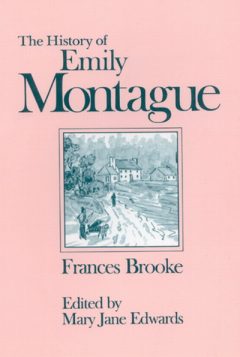by Jody Mason, Associate Professor, Department of English
Carleton University is fast approaching its seventy-fifth anniversary: it’s a good time for all of us to recall the many ways in which this university’s contributions have shaped the communities around it. One of the key areas in which faculty members in the arts and social sciences have assumed a leading national role is in the development of the once nascent field of Canadian literary studies.
Canadian authors of fiction now enjoy a global recognition that has grown exponentially in the wake of Michael Ondaatje’s 1992 Booker Prize for his novel The English Patient. Yet Can Lit did not always have the legitimacy of an academic field. As University of New Brunswick professor Desmond Pacey recounted in a 1973 article on the rise of Canadian literary study, the inaugural 1952 Toronto gathering of the Association for Canadian University Teachers of English hosted one of the first conference sessions devoted to Canadian literature. The conference’s organizer, A.S.P. Woodhouse, lamented the lack of audience members for the sessions on British literatures:
“Two centuries of English literature—and only a handful of people. And on the other hand Canadian literature (said in a tone of supreme disdain)—and just look at the mob!”
Faculty at Carleton were key players in the emergence of this “mob” during the latter half of the twentieth century: Carleton was the first university in the country to establish an Institute of Canadian Studies (1957) and also the first in the nation to offer an M.A. in Canadian Studies. The contributions of this program to the larger field of Canadian Studies are innumerable, and it helps to narrow the lens a little—to look, for instance, at the way that the early study of Canadian Literatures was nourished here at Carleton.
To take but one example generated by our narrowing, the M.A. in Canadian Studies played an important role in shaping the first generation of academics to devote their careers to the study of Canadian Literatures. Moreover, many of the research and cultural initiatives nurtured within both Canadian Studies and by affiliated faculty in the Department of English during the 1960s, 70s, and 80s are recognized as indispensable to the emergence of Canadian literary studies.
In the Department of English, we recognize Munro Beattie, first Chair of English and an important contributor to the country’s first national literary history, and George Johnston, a well-known Canadian poet and professor in the Department of English, with, respectively, an annual lecture and an annual poetry award. Yet other figures and projects key to the emergence of Canadian literary studies are not so visible.
For example, the Carleton Library Series, initiated by Professor of English R.L. McDougall in the 1950s, is the most enduring reprint series of titles devoted to Canadian history; like its literary complement, the New Canadian Library, the Carleton Library Series enabled the expansion of undergraduate and graduate teaching on Canadian topics in the newly expanding universities of postwar Canada. Initially published by McClelland & Stewart, and then after 1981 by the university’s own Carleton University Press, which was established by Professor Emeritus of English Michael Gnarowski, the series is now published by McGill-Queen’s University Press and keeps important titles such as George Grant’s Lament for a Nation and Richard J. Preston’s Cree Narrative in print.
 From 1979 to 2012, Carleton also hosted the Centre for Editing Early Canadian Texts (CEECT), an essential effort in the creation of undergraduate and graduate courses in early Canadian Literatures. Established by Distinguished Research Professor Mary Jane Edwards (who also served as general editor of the series) and Robert G. Laird, R.L. McDougall, S.F. Wise, and J. Jeremy Palin (and later joined by Michael Gnarowski, James Johnston, John A. Stewart, and D. Roland Thomas), the centre was unique from other literary projects in that it was the first in Canada dedicated to the preparation of scholarly editions of early English-Canadian prose. Not only were there few early Canadian literary titles in print in the late 1970s, when the project was conceived, the field of scholarly editing had made very little impact on Canadian literary studies. Lack of availability and abridgement were common problems that made teaching in this area difficult, if not impossible. CEECT remedied this problem with scholarly editions of titles such as Thomas Chandler Haliburton’s bestselling nineteenth-century satire The Clockmaker, Susanna Moodie’s Roughing It In the Bush, and the novel often claimed as Canada’s “first,” Frances Brooke’s The History of Emily Montague (published originally in 1769). Eleven of these editions were published by Carleton University Press; the twelfth, and last, William Kirby’s historical romance Le Chien d’or / The Golden Dog: A Legend of Quebec, was published by McGill-Queen’s University Press, through which all the CEECT editions are still available. Of the series, Professor Edwards notes that “one of the most interesting achievements of CEECT was the way in which we integrated into our research program over ninety graduate and undergraduate students in Canadian Studies, Computing Science, English, and History.”
From 1979 to 2012, Carleton also hosted the Centre for Editing Early Canadian Texts (CEECT), an essential effort in the creation of undergraduate and graduate courses in early Canadian Literatures. Established by Distinguished Research Professor Mary Jane Edwards (who also served as general editor of the series) and Robert G. Laird, R.L. McDougall, S.F. Wise, and J. Jeremy Palin (and later joined by Michael Gnarowski, James Johnston, John A. Stewart, and D. Roland Thomas), the centre was unique from other literary projects in that it was the first in Canada dedicated to the preparation of scholarly editions of early English-Canadian prose. Not only were there few early Canadian literary titles in print in the late 1970s, when the project was conceived, the field of scholarly editing had made very little impact on Canadian literary studies. Lack of availability and abridgement were common problems that made teaching in this area difficult, if not impossible. CEECT remedied this problem with scholarly editions of titles such as Thomas Chandler Haliburton’s bestselling nineteenth-century satire The Clockmaker, Susanna Moodie’s Roughing It In the Bush, and the novel often claimed as Canada’s “first,” Frances Brooke’s The History of Emily Montague (published originally in 1769). Eleven of these editions were published by Carleton University Press; the twelfth, and last, William Kirby’s historical romance Le Chien d’or / The Golden Dog: A Legend of Quebec, was published by McGill-Queen’s University Press, through which all the CEECT editions are still available. Of the series, Professor Edwards notes that “one of the most interesting achievements of CEECT was the way in which we integrated into our research program over ninety graduate and undergraduate students in Canadian Studies, Computing Science, English, and History.”

Reproduced with the permission of the Great Canadian Theatre Company.
As Léa V. Usin’s article “‘A Local Habitation and a Name’: Ottawa’s Great Canadian Theatre Company” points out, Carleton’s Department of English was also involved at the grassroots level in nurturing original Canadian theatre. Dissatisfied with the lack of original Canadian theatre on campus, a group of professors and graduate students at Carleton University––Bill Law, Robin Mathews, Greg Reid and Lois Shannon––decided in the mid-1970s to stage Mathews’s play A Woman Is Dying. This group, joined by Professor Emeritus of English Larry MacDonald, founded the Great Canadian Theatre Company in 1975, financing the first season with six thousand dollars of their own money. The Great Canadian Theatre Company was one of many independent, politically engaged, nationalist theatres established across Canada during the 1970s. Like so many of its contemporaries in what is sometimes called the “alternative theatre movement,” it was initially run on conviction and volunteer labour rather than large budgets. Before a permanent home was established in a renovated industrial garage on Gladstone Avenue in 1982, the theatre company performed on campus, at the Old Firehall, and at various other locations in Ottawa. Since 2007, the theatre has been housed in the Irving Greenberg Theatre Centre at Holland and Wellington Streets, where it continues to support original Canadian theatre.
Of course, much of this activity was fuelled by the nationalism of the 1970s, which prompted some scholars in Carleton’s Department of English to let their training in British literatures simmer while they tended the newly bubbling pot of Canadian literary study. In some cases, this nationalism took inspiration from the New Left and the anti-American sentiments of the day. Robin Mathews, a Professor in the Department of English during the 1970s and early 1980s, used his monographs The Struggle for Canadian Universities (1969; co-edited with James Steele) and Canadian Literature: Surrender or Revolution (1978) to call, among other things, for the preferential hiring of Canadian candidates in the nation’s universities, an argument that has been adopted in theory if not always in practice at universities across the country.
The study of Canadian Literatures retains a key place in the English undergraduate curriculum at Carleton; indeed, Carleton is one of the few universities in the country to retain a requirement obliging undergraduate students to study the literatures of Canada. The field has changed in many ways since the 1970s––critiques of its nationalist raison d’être have transformed it, for example, to the extent that Carleton’s CanLit syllabi now look quite different than they did forty years ago. Nevertheless, the study of local, regional, and national cultures in Canada continues to offer Carleton students a means of considering their own particular and situated engagement with the global forces that shape their everyday lives.